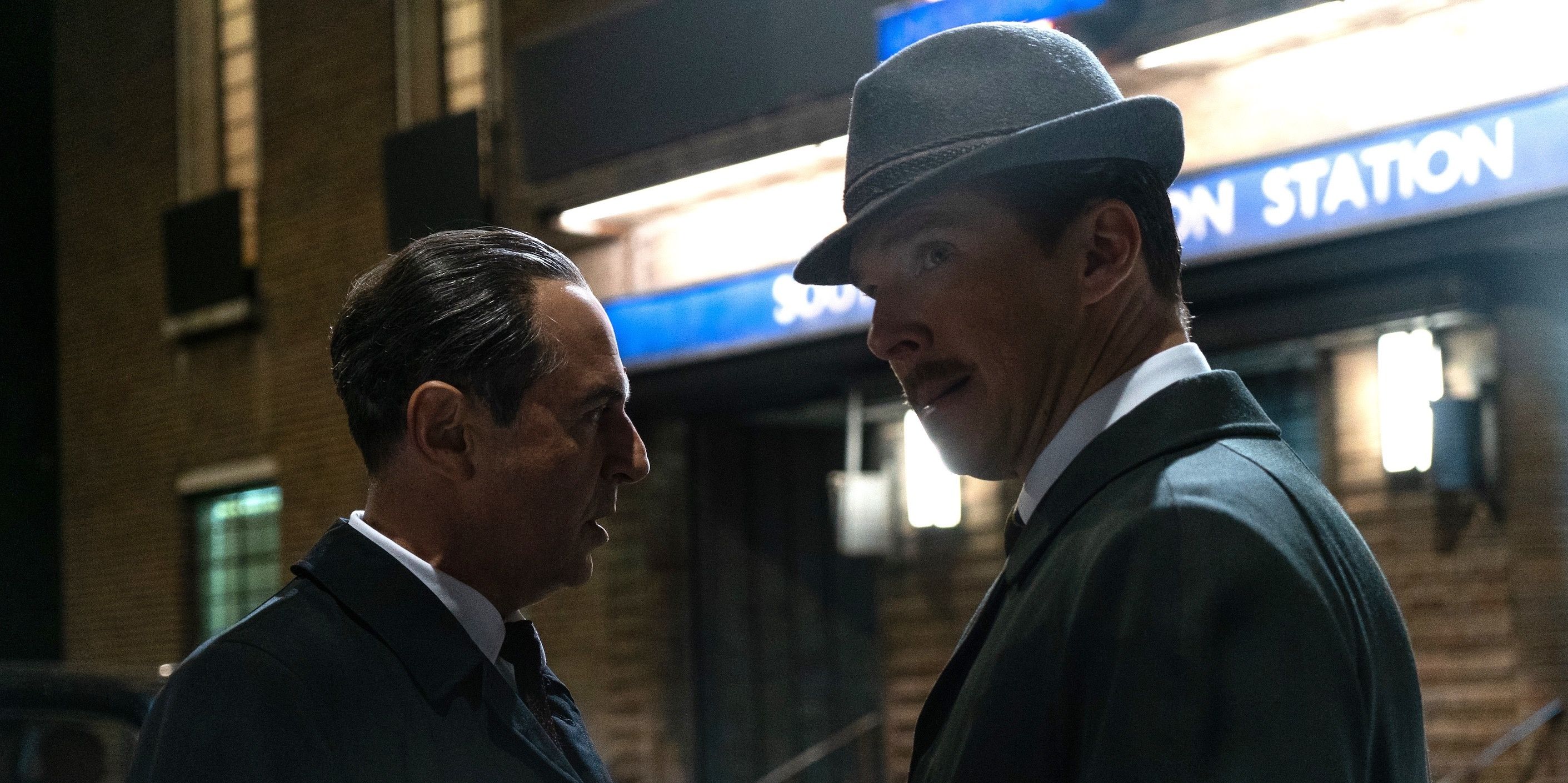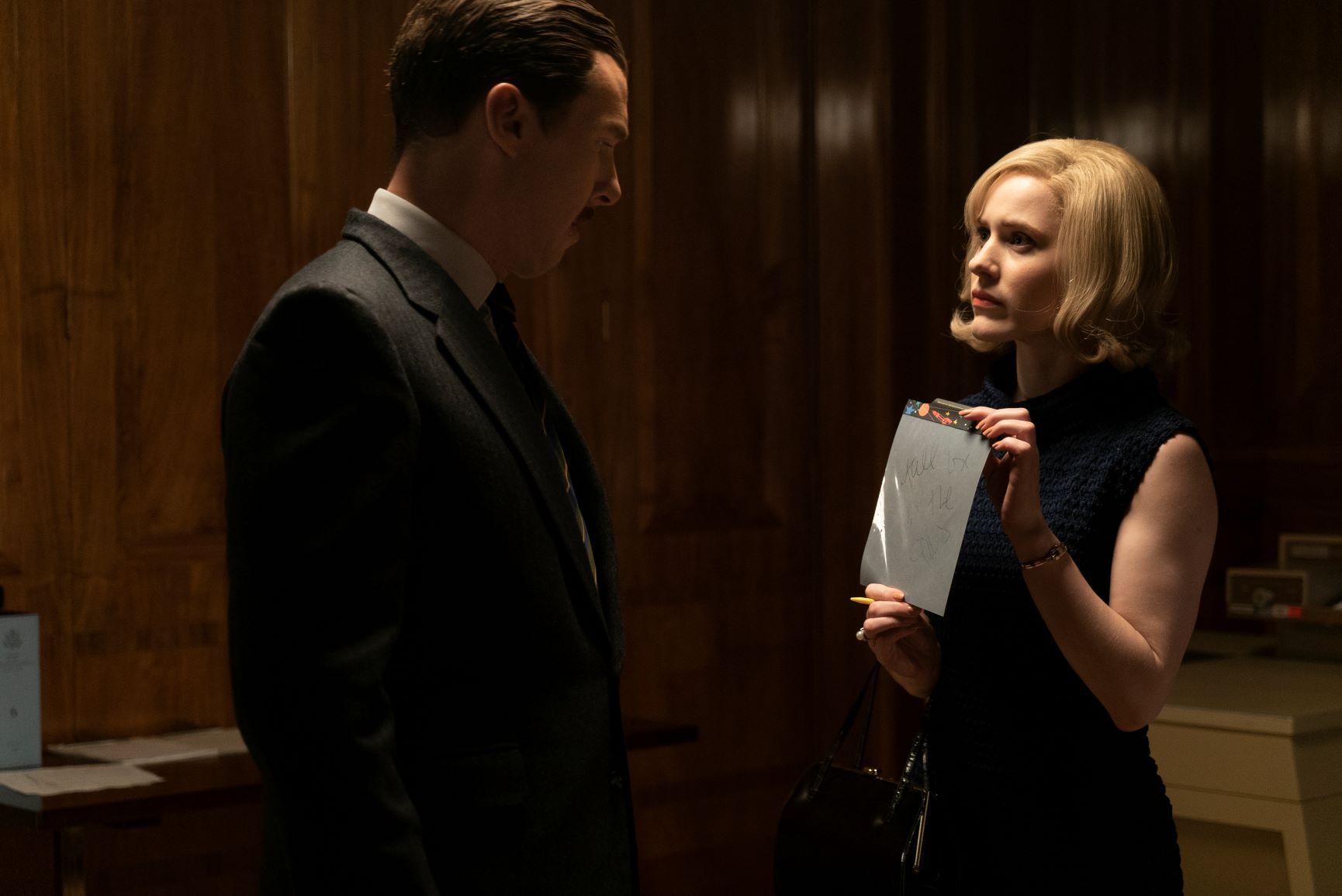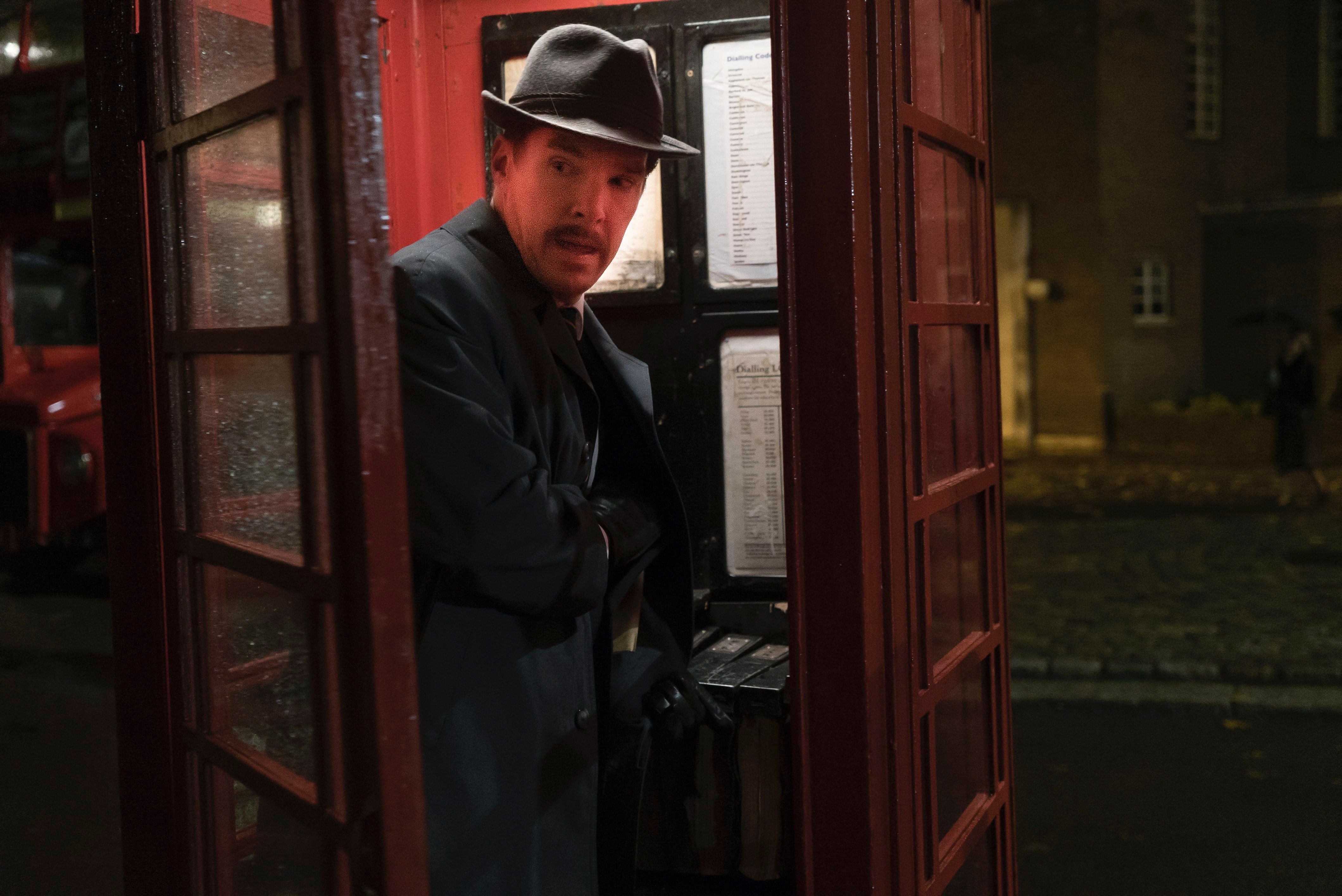There’s nothing in The Courier that hasn’t already been depicted in countless Cold War spy thrillers, both fiction and nonfiction, and director Dominic Cooke takes a straightforward approach to the familiar material. But the execution is effective, thanks to strong performances, a tight script and some tense set pieces. In the end, The Courier doesn’t need to be groundbreaking to be compelling.
Cooke and screenwriter Tom O’Connor also have a great subject for their fact-based story, English businessman Greville Wynne (Benedict Cumberbatch). A slick salesman who peddles manufacturing parts, Greville is mostly content with his business but feeling a bit restless, as he expresses to his patient wife Sheila (Jessie Buckley). So he’s the perfect candidate to be recruited by MI6 and CIA agents who need a civilian to credibly make contact with Soviet government official Oleg Penkovsky (Merab Ninidze). It’s 1960, and Oleg has passed a message to the American embassy that he wants to smuggle information to the West, in response to his growing concerns about the nuclear warmongering of Soviet Premier Nikita Khrushchev (Vladimir Chuprikov).
Since Oleg works on the Committee for Scientific Research, it makes sense for him to connect with a businessman like Greville, who comes to Moscow ostensibly to offer Western technology for sale to the Soviet manufacturing sector. Although he’s initially only supposed to make an introduction between Oleg and CIA agent Emily Donovan (Rachel Brosnahan), Greville soon becomes an integral part of the operation, serving as courier for classified Soviet information as he makes numerous business trips between London and Moscow over the next two years.
Initially bemused that he would be recruited for a spy mission, Greville starts to take his position seriously, while keeping it a secret from everyone in his life, including Sheila. The Courier's core relationship is between Greville and Oleg, who become close friends and spend time with each other’s families. While Emily and her MI6 counterpart Dickie Franks (Angus Wright) can maintain a level of detachment from the mission, Greville forms a personal bond that proves to be both the mission’s saving grace and his ultimate downfall.
Oleg’s importance increases during the Cuban Missile Crisis, as he becomes the primary source of information for the U.S. about Soviet nuclear missiles in Cuba. That also increases the danger for both Oleg and Greville, and while there are suspenseful moments throughout the movie, Cooke dials up the tension as the world stands on the brink of nuclear war, and the outcome may hinge on whether Greville can smuggle certain envelopes of information out of Moscow and back to London.
The Courier is more than just an exploration of a couple of underappreciated historical figures, though. Cumberbatch and the filmmakers make the movie into a character study about an unassuming functionary who finds purpose in his life even as that purpose threatens to tear his peaceful existence apart. When Greville is recruited, Dickie jokes that they’d never approach an out-of-shape middle-aged guy if the mission were remotely dangerous, and Greville views the assignment as a sort of game at first. But soon he’s vigorously exercising to get himself in fighting shape and volunteering for greater involvement, which brings greater danger.
Cumberbatch conveys Greville’s evolution via the way he carries himself, so that by the point he’s arguing in favor of putting himself in harm’s way, even against the advice of his handlers, it makes complete sense. Buckley is stuck with the largely thankless role of the worried wife, although she does what she can with Sheila’s concerns, which hinge on her suspicions that Greville is having an affair, as he did once in the past. There’s more of an emotional bond between Greville and Oleg, and Ninidze gives the stoic official a quiet dignity. Oleg points out that the friendship between himself and Greville is more important than the antagonism between their two governments, demonstrating that shared humanity can overcome political animosity.
Of course, that only goes so far, and The Courier becomes a bit overwrought in its final act as the main characters are faced with the consequences of their actions. After a masterfully constructed sequence of Emily’s attempt to get Oleg and his family out of the U.S.S.R., there’s a protracted prison saga, complete with showy acting from the leads. It may remain true to the facts of these men’s lives, but it distracts from the central narrative of the movie, feeling more like a prolonged epilogue than an essential part of the story.
The majority of The Courier is so gripping that the final letdown doesn’t really harm it, though, and it provides some closure on the story of these two men who perhaps don’t get enough credit for changing the course of history. Like Steven Spielberg’s similar Bridge of Spies, The Courier proves that major world events are often shaped not by prominent leaders, but by everyday functionaries who exhibit uncommon human decency. It may be the kind of story that has been told before, but The Courier shows that it’s worth telling again.
Starring Benedict Cumberbatch, Merab Ninidze, Rachel Brosnahan, Jessie Buckley and Angus Wright, The Courier opens Friday, March 19 in theaters nationwide.



